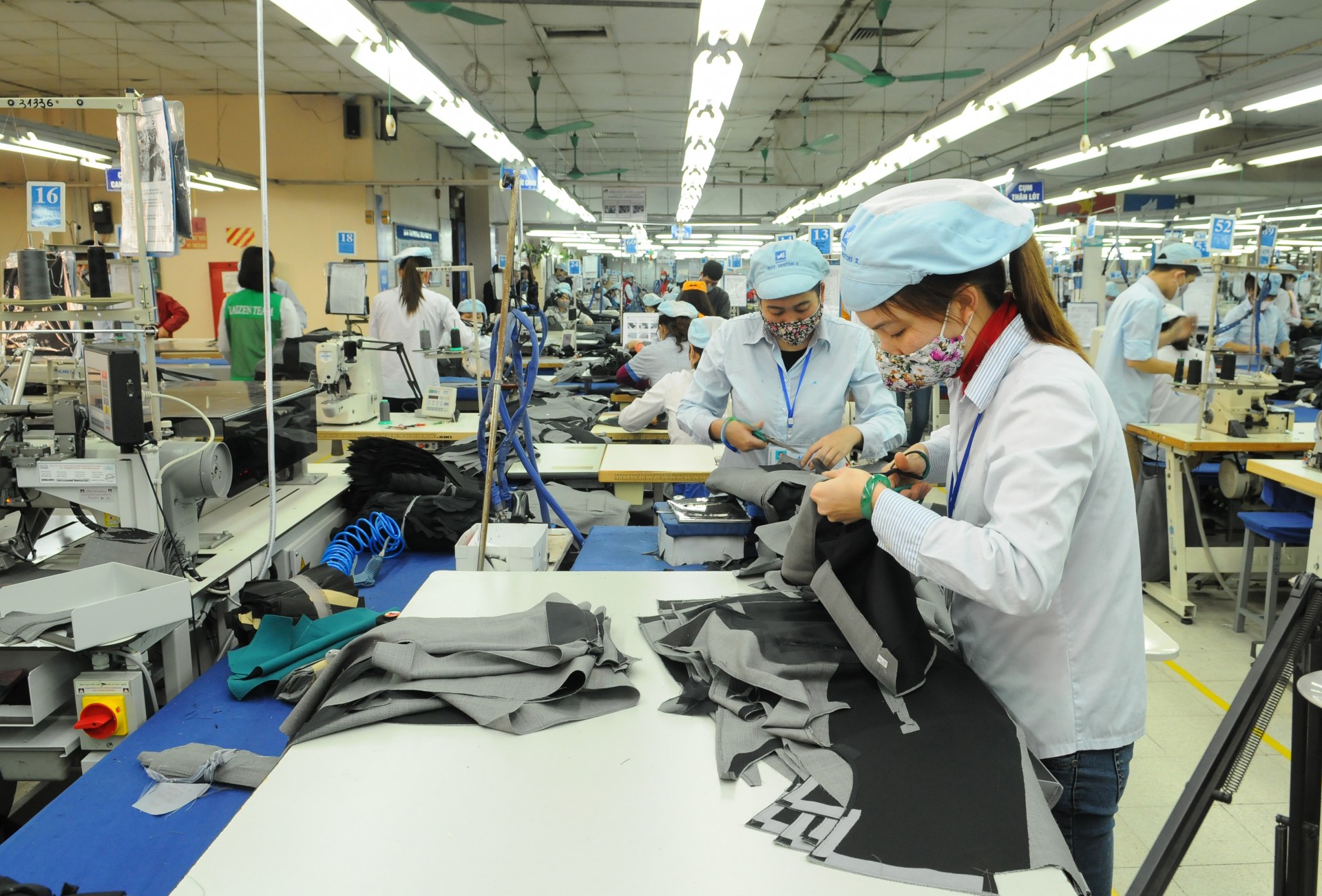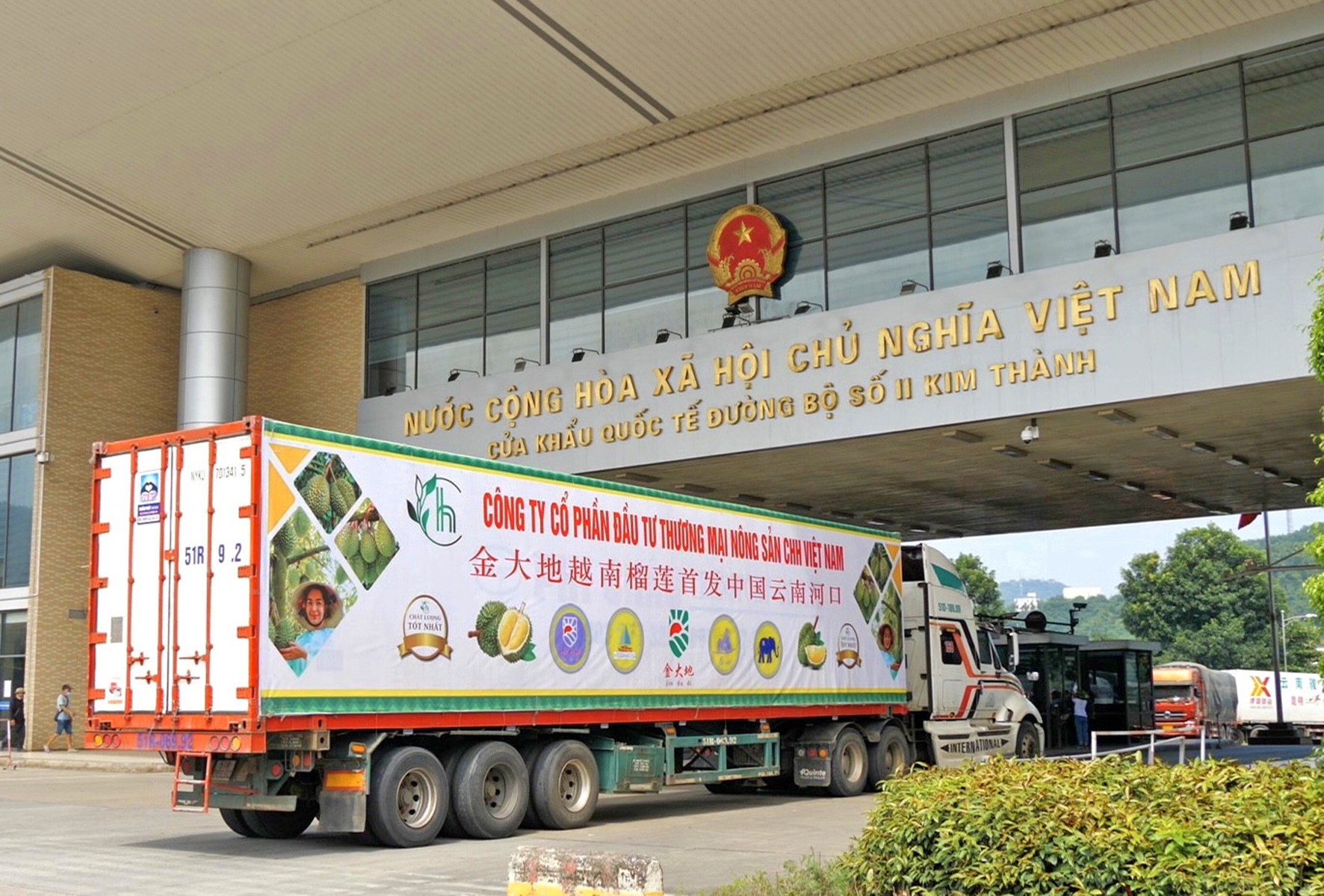
Export value to China expected to recover since Q2: MOIT
Latest
Good signs of recovery
According to Tran Quang Huy, Director of the Ministry of Industry and Trade’s Asia-Africa Market Department, in the first quarter of 2023, Vietnam exported goods worth 11.9 billion USD to China, down 11.3 per cent compared to the same period in 2022. The rate of export decrease dropped from 24.33 per cent in January to 18.72 per cent in February, showing a good sign for future recovery.
 |
| Vietnam exported textiles and garments worth US$220 million to China in the first quarter of this year. |
While exports of cellphones and components, fiber and fabric, seafood, textiles, garment, and chemicals fell, those of fruits and vegetables, rice, base metals, paper and paper products, cashew, textile, garments, and leather and footwear materials improved in the first quarter. The Asia-Africa Market Department’s representative said China has lifted most of its pandemic control measures for people and goods entering and/or exiting the country, while China’s economy has started to recover, growing by 4.5 per cent in the first quarter of 2023. Customs clearance at Vietnamese-Chinese border crossings has improved and remains stable, creating favorable conditions for Vietnamese businesses to increase exports to China.
The volume of goods traded through border crossings in Vietnam’s northern provinces of Lang Son, Quang Ninh, and Lao Cai has increased to the pre-pandemic level.
The above-mentioned factors are set to augur a brighter future for Vietnamese-Chinese trade from the second quarter to the yearend, according to Huy.
 |
| Exporting durian to China through Kim Thanh II International Border Crossing - Photo: VGP. |
New policies
Vietnamese enterprises need to carefully study the information, regulations, and standards of the Chinese market, and fully follow its business registration, quality control, quarantine, packaging, and traceability regulations, Huy said.
China has implemented a number of new trade policies to promote high-quality growth, setting higher requirements and standards for imports and exports, and requiring Vietnamese producers and exporters to adapt to the changes.
A number of Vietnamese enterprises which haven’t learned about China’s new policies and regulations have temporarily lost their export licenses or received a strong warning.
The Asia-Africa Market Department’s Director recommended that Vietnamese enterprises coordinate with Chinese partners in order to personify border crossing-related export channels and take advantage of sea and railway transport to avoid cargo congestion at border crossings during the peak season. Vietnamese businesses should attend international trade fairs and exhibitions to look for partners, he said. The Ministry of Industry and Trade will organize many large-scale trade promotion activities in China, and the Asia-Africa Market Department will promote trade with traditional markets such as Guangxi and new markets like China’s Shandong and Hebei provinces, Huy said.
Businesses need to carefully learn about the needs and development trends of the Chinese market and increase the application of high technology in production, processing, preservation, branding, and brand protection.





















